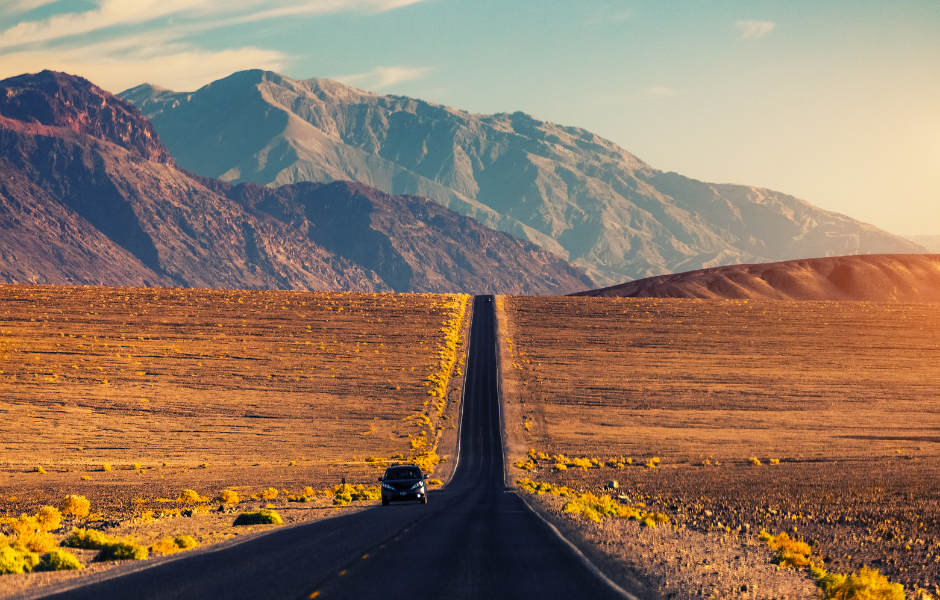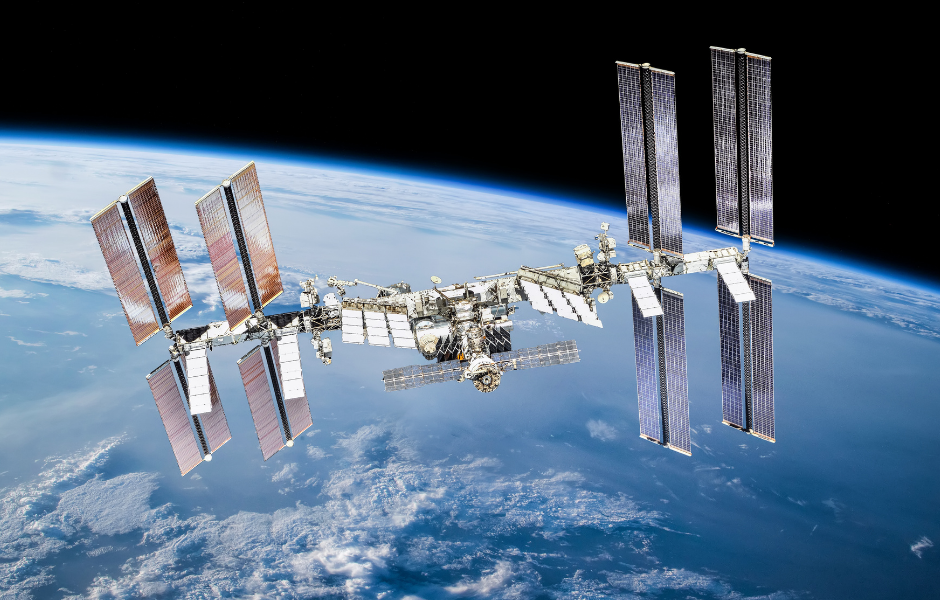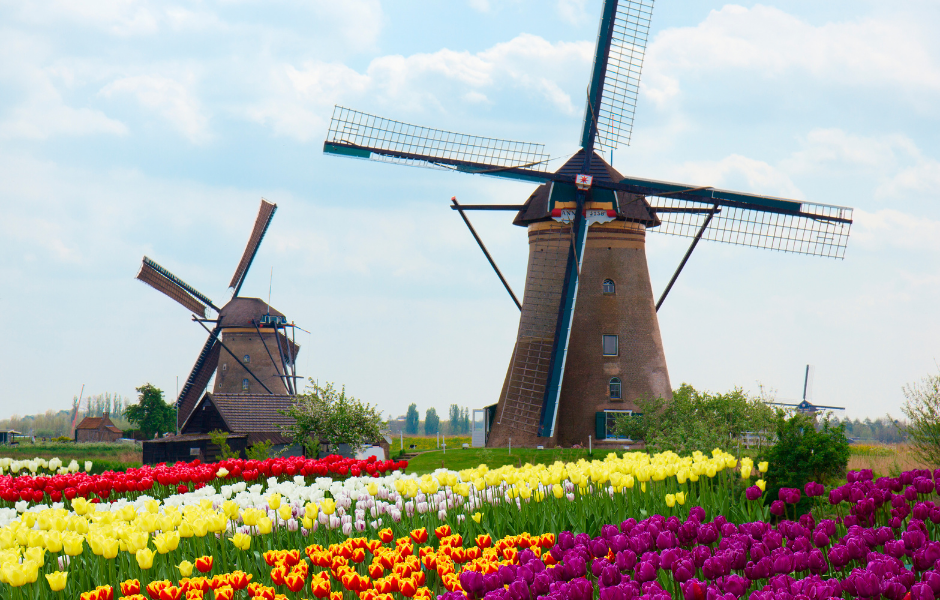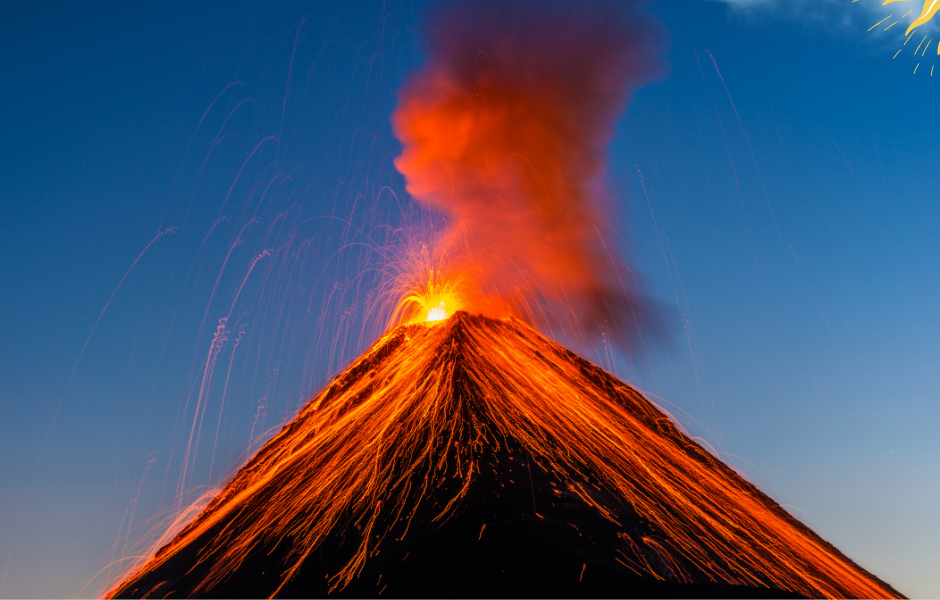
This children’s article, Why do volcanoes erupt?, has been written for native English speakers and learners of English as a second or foreign language. It can help children build vocabulary, learn about Earth’s forces, and discover the science behind one of nature’s most powerful events. Written by Mark Pulley, a teacher and writer who creates fun and informative news articles for English learners.
What is a volcano?
A volcano is like a giant opening in the Earth where hot, melted rock can escape. This melted rock is called magma when it’s underground, and lava when it bubbles and shoots out.
Volcanoes usually form near cracks in Earth’s crust, often where two tectonic plates meet. These plates are like puzzle pieces that slowly move around the planet, sometimes creating mountains, earthquakes, and volcanoes.
Why do they erupt?
Deep inside Earth, it’s so hot that rocks melt into magma. This magma collects in big underground chambers. Over time, pressure builds up when the heat forces the gases to expand; it’s similar to shaking a fizzy drink can.
When the pressure becomes too much, the magma pushes its way out through cracks and blasts out of the volcano. This can cause lava flows, ash clouds, and even huge, violent explosions.
Different kinds of eruptions
Not all volcanoes explode the same way. Some have gentle eruptions where lava slowly oozes down the sides, which can create new land. These are often seen in places like Hawaii.
Others are much more violent, with huge explosions that send ash high into the sky. These can be very dangerous and have the power to change the weather for months or even years!
Why are they important?
Volcanoes can cause incredible amounts of damage, but they also help create life. Not only are many islands around the world created by volcanoes, but lava and ash eventually break down into rich soil that allows farmers to grow some of the best crops in the world.
Without volcanoes, Earth’s surface would look very different, and some places wouldn’t even exist!
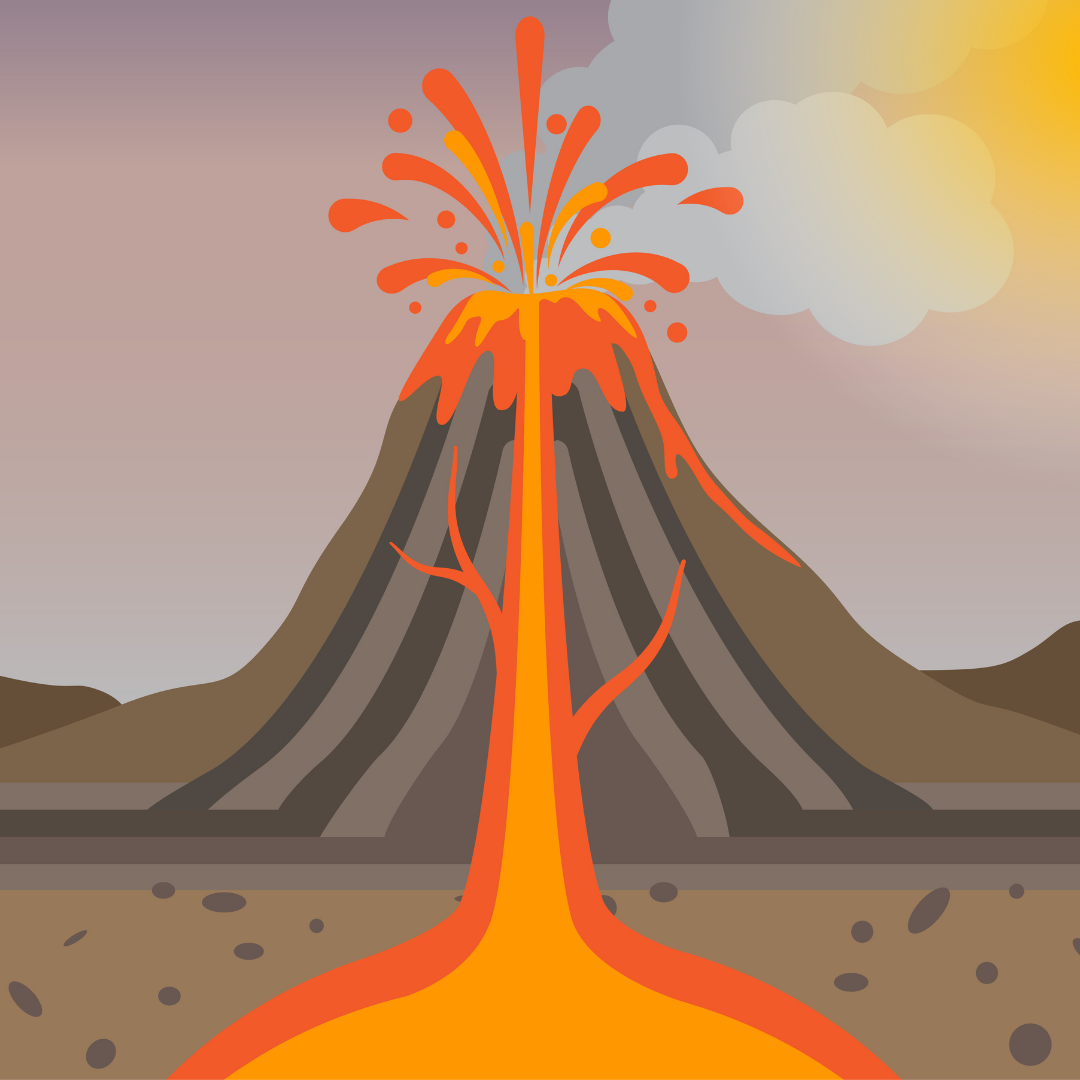
Article vocabulary list
- Volcano: A mountain or opening where lava, ash, and gases come out of the Earth.
- Magma: Melted rock that is still underground.
- Lava: Melted rock that has reached Earth’s surface.
- Tectonic plates: Large pieces of Earth’s crust that move slowly around the planet.
- Crust: The outer layer of Earth, where we live.
- Chamber: A space underground where magma collects.
- Eruption: When magma, gases, and ash burst out of a volcano.
- Ash: Tiny bits of rock and dust thrown into the air by a volcano.
- Soil: The top layer of Earth where plants grow.
- Explosive: Something that bursts out suddenly with a lot of force.
Comprehension questions
Just click the plus (+) to see the answer
1. What is magma called once it reaches the Earth’s surface?
A) Ash
B) Lava
C) Soil
Answer: B) Lava
2. Why does magma build up pressure underground?
A) Because it’s shaken like a fizzy drink
B) Because tectonic plates push it upwards
C) Because gases and heat make it expand
Answer: C) Because gases and heat make it expand
3. Which type of eruption is seen in Hawaii?
A) Gentle lava flows
B) Explosive ash clouds
C) Earthquakes without lava
Answer: A) Gentle lava flows
4. What useful thing do volcanoes create after eruptions?
A) Salt water
B) Rich soil
C) Cold air
Answer: B) Rich soil
5. Why are tectonic plates important for volcanoes?
A) They cause cracks where magma can escape
B) They create rain that cools lava
C) They make soil rich for farming
Answer: A) They cause cracks where magma can escape

Mark is a writer and EFL teacher from England with eight years’ experience. He’s passionate about travel, sport (especially football), animals, nature, and history, and enjoys helping children explore the world through language and learning.


